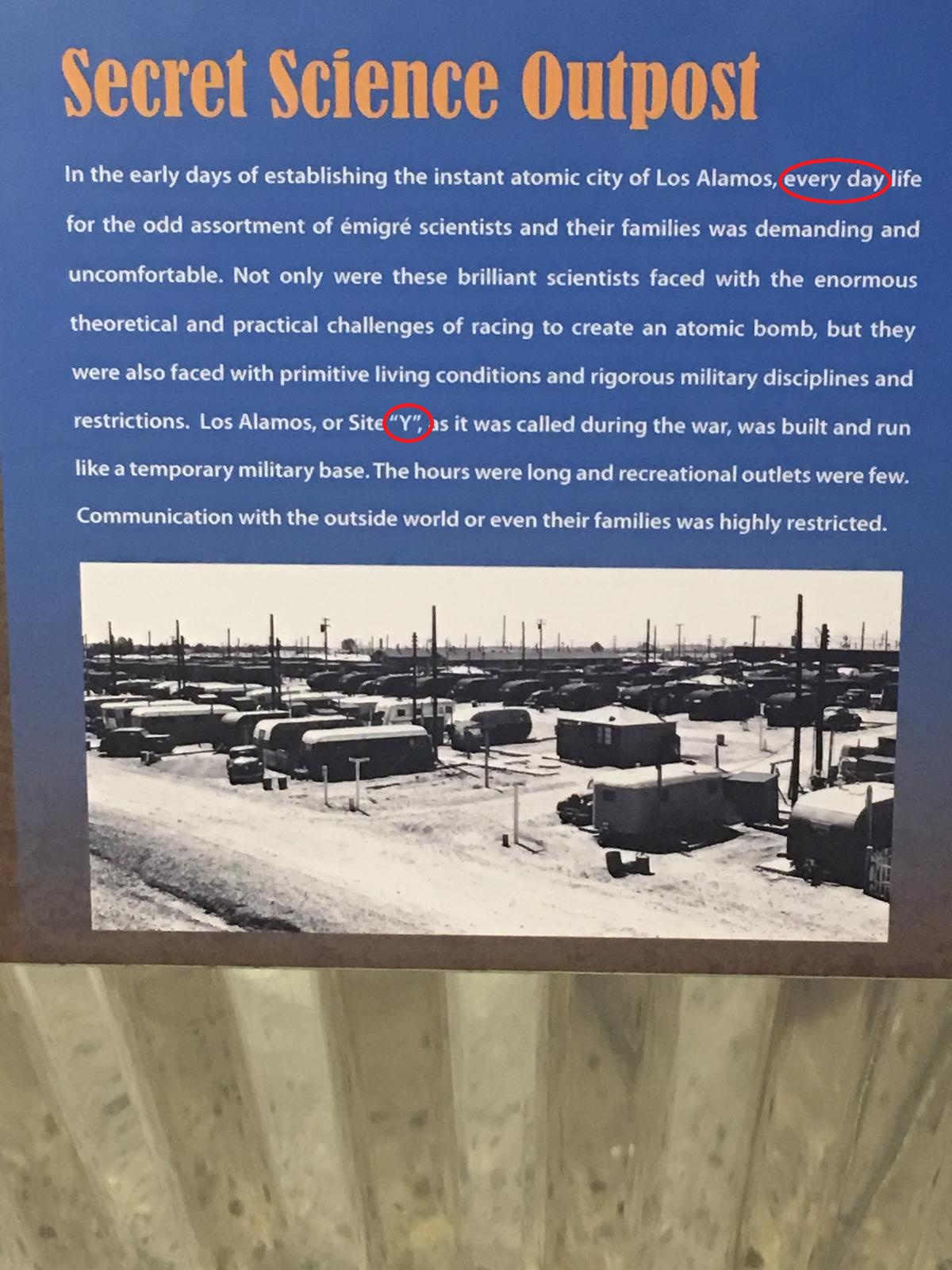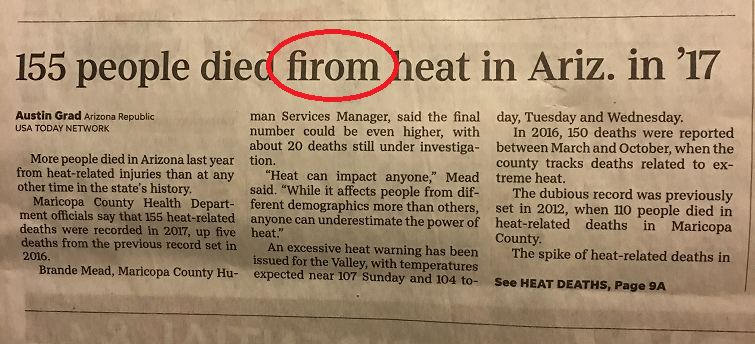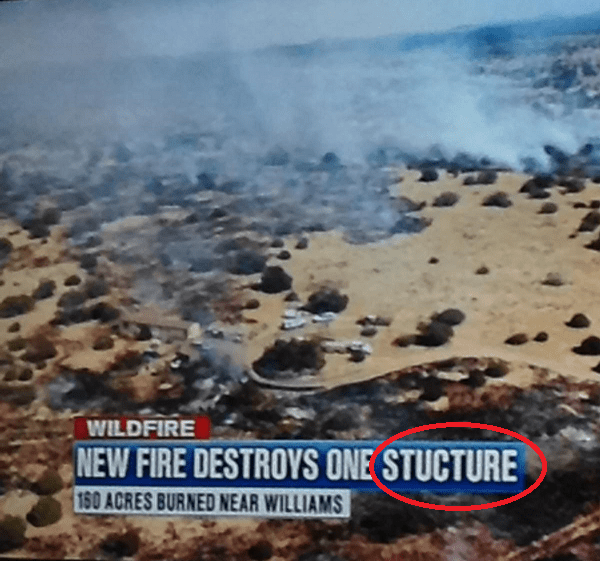On a recent trip to Albuquerque, we visited the National Museum of Nuclear Science & History. While I was there because my husband was very interested in it, I used it more as an opportunity to check for potential Grammar Giggles. I was successful. As I’ve written about previously, everyday means commonplace or ordinary as in an everyday occurrence and every day means something that happens every single day or each day. In this case, they really mean ordinary or commonplace life. The comma with “Site ‘Y’,” is an extra. Besides the fact that if it needed a comma there, it would be inside the ending quotation marks,it really doesn’t need a comma there at all. They are talking about “Site ‘Y’ as it was called during the war,” but there does not need to be a comma after “Y.”



 Follow
Follow
 It’s time for a review of recent blog posts just in case you’ve missed them. We call this Replay Thursday. Here are posts from Proof That proofreading blog and 60 Is The New 60 blog during the past week.
It’s time for a review of recent blog posts just in case you’ve missed them. We call this Replay Thursday. Here are posts from Proof That proofreading blog and 60 Is The New 60 blog during the past week. It’s time for “Confusing Words of the Week” where I take a set of two or three words that get confused and give you definitions and try to give you a memory trick to help you remember when to use which word. If you have words that confuse you, use the Ask PTB tab on the website or send an email to
It’s time for “Confusing Words of the Week” where I take a set of two or three words that get confused and give you definitions and try to give you a memory trick to help you remember when to use which word. If you have words that confuse you, use the Ask PTB tab on the website or send an email to 


